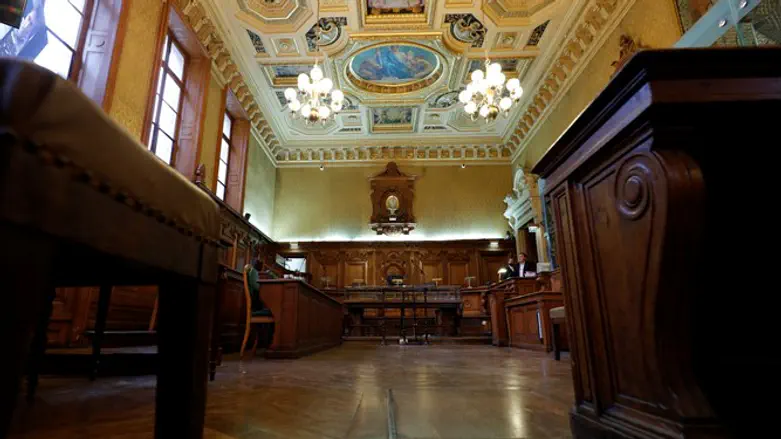
The brother of the Islamist radical who shot dead seven people in Toulouse, France in 2012, including three Jewish schoolchildren, went on trial Monday accused of complicity in the attacks, AFP reported.
Mohamed Merah's attack on the Otzar Hatorah school in Toulouse was the deadliest on Jews in France in three decades.
The 23-year-old Toulouse native gunned down a rabbi, two of the rabbi's children aged three and five, and an eight-year-old girl.
Before the attack at the Jewish school, Merah shot dead three soldiers based in the nearby garrison town of Montauban. Merah was ultimately killed when he tried to flee a raid on his apartment.
The attacks, which Merah carried out in the name of Al-Qaeda, were the first in a wave of jihadist assaults that continued in 2015 with the massacre at satirical magazine Charlie Hebdo and the Paris massacre in November of that year.
In the latest attack on Sunday, a man shouting "Allahu Akbar" stabbed two women to death at the main train station in Marseille.
The trial of Merah's brother, Abdelkader, is the first arising out of the spate of killings.He is accused of helping to facilitate his brother's attacks, in particular by helping him steal the scooter used in three separate shootings.
His co-defendant, 34-year-old Fettah Malki, is accused of helping Mohamed Merah obtain a bulletproof jacket, Uzi submachine gun and ammunition.
Neither man denies helping the gunman obtain materials but claim they were unaware of his intentions.
Abdelkader faces a possible life sentence while Malki could get 20 years in prison, noted AFP.
Dressed in white, with a flowing beard and long hair pulled back in a ponytail, Merah told the court he was employed as a painter and decorator, while Malki said he was a pizza cook.
According to the presiding judge, Malki arrived in France when he was 11 and lived for several years in the same Toulouse neighborhood as Mohamed Merah, alone with his divorced mother, a cleaning woman.
He unsuccessfully applied to join the French Foreign Legion before taking a string of small jobs, often under the table, while also selling drugs or stolen cars and jewelry.
"I am not religious, I don't even think I can been considered a Muslim," Malki told the court.
When detained, he was initially placed in a prison wing reserved for radicalized inmates, before being removed. "They quickly saw that he had no place there," his lawyer Edouard Martial said.
Malki added, "When I bought these guns, I thought I could make some money with them. But I kept them, to protect myself."
"I made a mistake in giving them to Merah, I didn't want them to be used to kill," he continued.
Investigators believe Abdelkader, who was also known to intelligence services for his ties to radical Islamists, had considerable influence over his brother.
Defending his sibling in 2012, the elder Merah had said, "Every Muslim would like to give his life to kill his enemy."
Prosecutors say the pair were repeatedly in contact in the days before the shootings.
"Abdelkader Merah expressed the sympathy he felt with his brother's acts. He is not a scapegoat," said Simon Cohen, a lawyer representing some of the plaintiffs.
"If Mohamed Merah has blood on his hands, Abdelkader has blood on his soul," he added.
AFP contributed to this report.